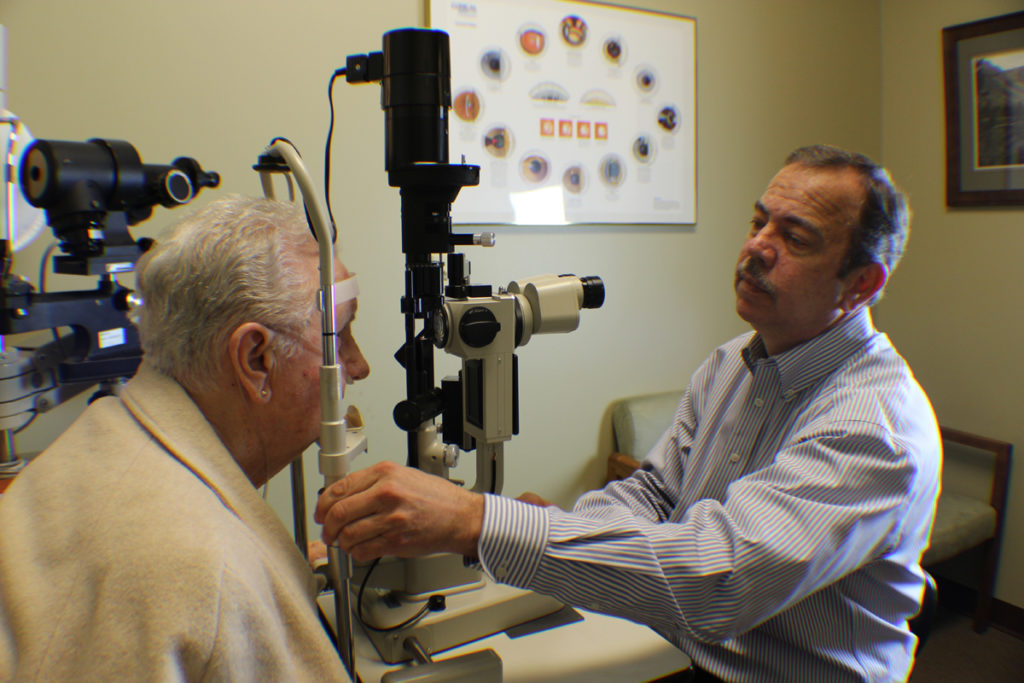 According to the Glaucoma Research Foundation, glaucoma is defined as “a disease in which damage to the optic nerve leads to progressive, irreversible vision loss”. There are two more common types of glaucoma: open-angle glaucoma and angle-closure glaucoma.
According to the Glaucoma Research Foundation, glaucoma is defined as “a disease in which damage to the optic nerve leads to progressive, irreversible vision loss”. There are two more common types of glaucoma: open-angle glaucoma and angle-closure glaucoma.
Open-angle glaucoma typically has no early warning signs or symptoms and is the MOST common form.
Angle-closure (or narrow angle) glaucoma may be accompanied by very noticeable signs and symptoms however, and should be seen by an ophthalmologist immediately should one experience them. These may include:
Both types of glaucoma, if left untreated, may cause blindness.
The best way to avoid the serious consequences of this group of diseases is to undergo regular eye examinations. If glaucoma is caught when the signs are very early and treatment is begun, the risk of developing significant visual loss is quite small. An accurate and detailed evaluation includes five diagnostic procedures:
Note: Routine/subsequent glaucoma follow-up visits include the diagnostic tests: tonometry and ophthalmoscopy.
Increased risk factors for developing glaucoma include:
Once one has been diagnosed with glaucoma it is essential to seek medical treatment as soon as possible. Each attack of this disease destroys more of one’s sight. The doctor will carefully explain the various treatment options available which may include: medications in the form of eye drops or a surgical procedure depending upon the stage and severity of the progression and the type of glaucoma one has.
For open-angle glaucoma the treatment begins with eye drops and may progress to surgery to help unblock the drainage canals in the eye to help facilitate ease of movement of the fluid through the eye so pressure may be decreased and maintained at a healthy level.
For angle-closure, or narrow-angle, glaucoma a laser procedure is most typically done to remove a small portion of the outer edge of the iris, again to facilitate fluid movement through the eye.
Schedule Your Glaucoma Screening Today
A glaucoma screening should be included in any thorough eye examination and medical professionals recommend having regularly scheduled eye exams; determined by your age and other risk factors. Screening are even more important for patients over the age of 60 and for those who have any risk factors listed above. To schedule a glaucoma screening for you or your family, contact us today!